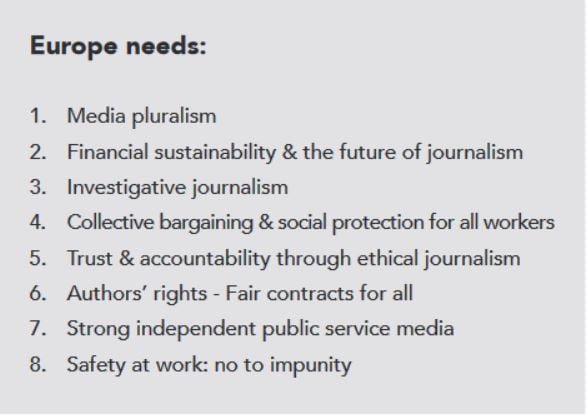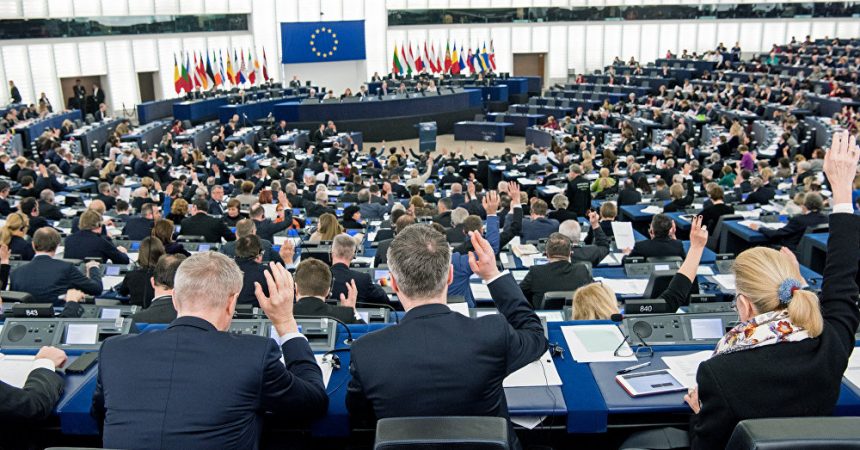The European Federation of Journalists has launched its manifesto in the lead up to the upcoming European elections, including eight principles of media freedom.
Calling for a “free and pluralistic media in Europe,” the EFJ called for MEP candidates to commit to eight points considered necessary during a time of disinformation and diminishing trust in EU institutions.
They include media pluralism, investigative journalism, the protection of workers and a commitment to a strong and independent public service media. The EFJ also called on MEP candidates to focus on ways to end impunity.

The EFJ, one of the largest unions representing over 300,000 journalists in 45 countries, said the rights of journalists have diminished in recent years.
Labour rights and working conditions, self-censorship as a result of political and economic pressure, and a lack of public confidence in the media are all cited as reasons why such action is necessary.
The EFJ pointed out that freedom of expression and media freedom was protected under the EU Charter of Fundamental Rights. Yet, over the last two years, four journalists have been murdered within the EU. They include Maltese journalist Daphne Caruana Galizia, killed in a car bomb on 16 October, 2017.
Calling this an “unprecedented attack on our values” the journalists’ union asked for a number of changes at policy, national, and party level across the bloc.
In terms of investigative journalism, the EFJ are advocating for the freedom of journalists to hold institutions and individuals to account, without fear of being put under surveillance, or prosecuted. Suggestions include greater support for journalists that are regularly subjected to lawsuits designed to censor or intimidate them, the abolishment of criminal defamation laws, reinforcement of the right to protect sources, and stepping up the fight against increased digital surveillance.
Additionally, an end to impunity and the right for a journalist to be safe carrying out his or her work should be raised throughout Europe. Particular attention is drawn to combating threats and harassment against female journalists and monitoring the ongoing investigations into murders and physical attacks against journalists in the European Union.
The EFJ also call for the implementation of the Council of Europe Recommendation CM/Rec (2016) on the protection of journalism and safety of journalists and other media actors, at a national level.
Over the last few months, Malta has come under extensive criticism for its failures in protecting media freedom, journalists, and freedom of expression.
International entities including the European Parliament, the Council of Europe, and the United Nations have all called on Malta to do more to protect media freedom, as well as to order a public inquiry into the murder of Caruana Galizia – something the government refuses to do.












